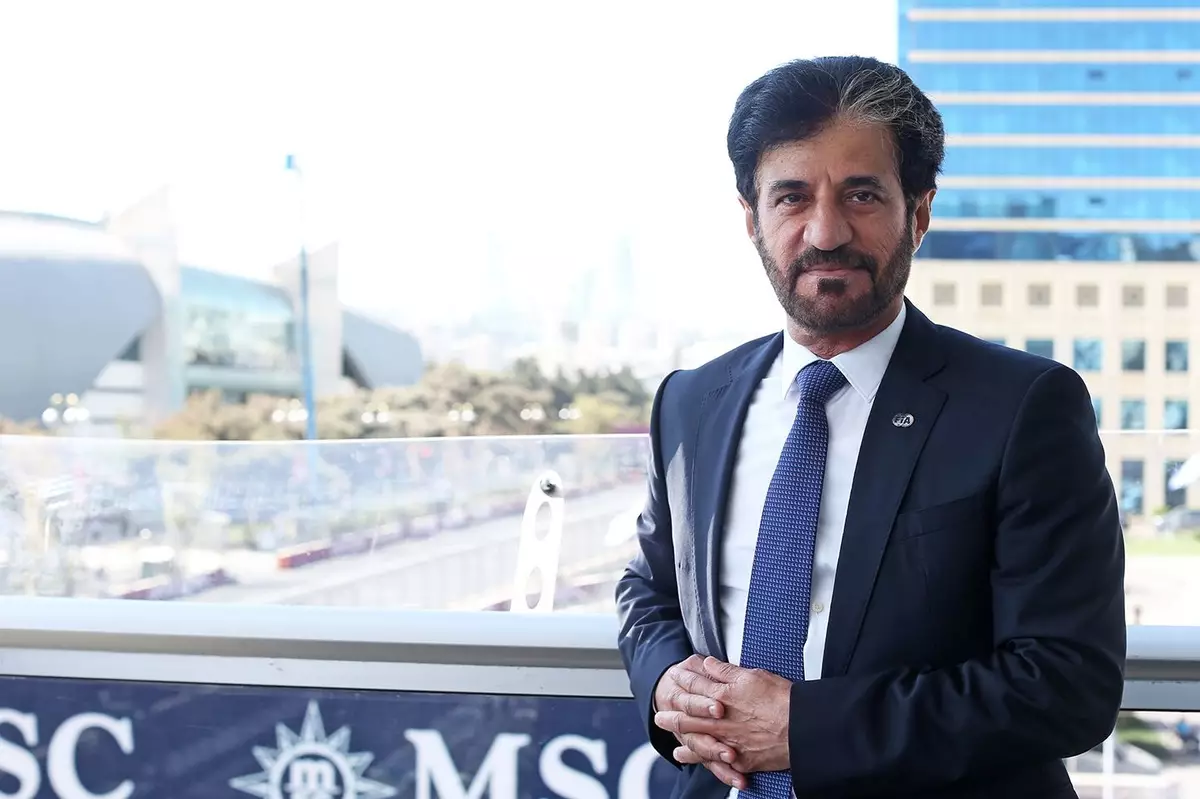The climactic intersection of motorsport and media has often garnered attention, but little can compare to the recent statements made by FIA President Mohammed Ben Sulayem. Throughout his tenure, he has expressed discontent over perceived biases from British media outlets, particularly in light of comments made by Adrian Newey on the high-performance podcast. The discourse has sparked questions surrounding the role of the press in the realm of sports governing bodies and the implications of its narratives.
In the podcast, Newey discussed his transition from Red Bull to Aston Martin but diverted attention to the treatment of key figures like Max Verstappen and Sebastian Vettel. His claims that both racers have experienced unfair demonization at the hands of the British media resonated with Ben Sulayem, who echoed these thoughts in an interview with Autosport. This acknowledgment raises an essential discussion about media influence and fairness, or the lack thereof. Are formulas for media scrutiny just as important as the technical formulas used to ensure these high-speed machines perform at their peak?
Ben Sulayem’s Rebuttal
Ben Sulayem’s reaction to media critique significantly showcases his insistence on maintaining autonomy against the might of media narratives. “If you look at the British media and what they did to me… they convicted me,” stated Ben Sulayem, emphasizing a stance that champions independence from public opinion. His assertions reveal an underlying frustration about the media’s propensity to prioritize sensationalism over factual representation. This poses a broader question: should the role of the media be more focused on fostering fair narratives, especially for figures responsible for the sport’s integrity?
Furthermore, his blatant disregard for media pressure underlines a critical viewpoint that places emphasis on self-governance and internal accountability. “They are after selling and getting more coverage for themselves,” he declared, adorning his response with an insistence on the FIA’s independence. The implications of this statement extend beyond mere journalism; they touch on the very fabric of governance in sport, suggesting that external voices must not overshadow democratic structures.
The endurance and character demonstrated by Ben Sulayem reinforce a crucial quality needed in sports leadership—resilience. Throughout his tenure, he expressed determination to stay the course even amid adversity, highlighting that if the members of the FIA elect a new president, it is ultimately their decision. His approach embodies a democratic ethos: the power lies with the stakeholders, not the fleeting judgments of the media. “At the end of the day, who put me there? It’s the General Assembly, it’s the members,” he noted decisively.
Ben Sulayem’s optimistic assessment of the FIA’s progress paints a picture of reformative governance. He notes a substantial transformation, suggesting a “healthier” FIA, a statement that carries significant weight given the financial and reputational pressures facing governing bodies in competitive sports today. The implication here is clear: a fortified FIA translates to a thriving motorsport environment, where crucial decisions can be made efficiently and effectively.
Looking forward, Ben Sulayem has outlined ambitious objectives to meet the criteria of his manifesto. “For this year, just to finish and deliver my manifesto,” he remarked, intending to strengthen the FIA’s financial standing and internal structure, which holds paramount importance. Each strategic decision made today is positioned to benefit the sport in the long run. His commitment to the members is unequivocal: “If you remove the members, there is no FIA. Very simple.”
Such declarations encapsulate how integral community engagement is for the organization’s future, manifesting a genuine belief in collective progress. By prioritizing the bonds within the constituent clubs, Ben Sulayem positions the FIA not as a top-down bureaucracy, but as a federative organization that thrives on synergy.
In his willingness to engage in a “presidential race” with any challengers, he showcases an admirable confidence in his leadership while remaining open to scrutiny—a paradoxical stance for someone criticized. This encapsulation of democracy highlights that competitive integrity exists beyond mere racing; it also encompasses governance and representation.
As the FIA continues to navigate the treacherous waters of media perceptions and internal dynamics, the narrative set forth by Mohammed Ben Sulayem stands as an invitation for scrutiny, debate, and introspection. The crossroads of media influence and leadership in motorsport are complex and often fraught with tension. The challenge remains: while the media must strive for impartial reporting, leaders like Ben Sulayem must assertively uphold the values of the organizations they represent, ensuring that the conversation steers clear of sensationalism and remains firmly rooted in the sport’s integrity for the future.

